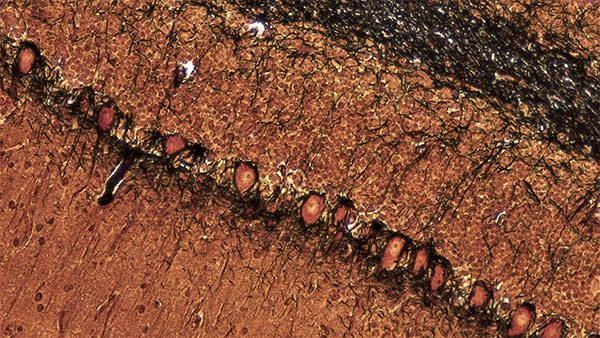Bioscience Image Library at BCC Sees Tremendous Growth
More than three million hits on website, with worldwide users
In 2019, when the pandemic had not yet taken hold in the United States, Berkshire Community College (BCC) Professor of Life Sciences Fayette Reynolds created the Bioscience Image Library. The website got under 1,000 hits. Just three years later, as the global workforce has become accustomed to working remotely and relying on digital communication, the digital library has gotten more than 3.3 million hits and is still growing as it gains attention worldwide.
"We had no idea this would turn into what it did," said Reynolds, who created the open educational resource (OER) library when she couldn't find copyright-free images for her research. "I'm thrilled with the comments we've gotten from people all over the world who truly appreciate being able to download and share images at no cost."
The Bioscience Image Library offers the general public free access to more than 1,200 microscopic images of plants, animals, bacteria, fungi and more. All images are within the public domain, meaning they can be used, reused, adapted or modified for any purpose and without restriction. As open educational resources, they are free of copyright and fees, allowing anyone with access to a computer the ability to download and share them. Reynolds also plans to add macro images of reptiles, amphibians, birds and mammals.
The images are particularly useful for students studying biology, botany, zoology, histology and microbiology, as well as faculty or researchers engaged in those areas of study. But the stunningly beautiful pictures also appeal to anyone who enjoys art, photography and design.
Many images have more than 10,000 views, including a section of a woody dicot root that resembles brilliant, teal-colored bubbles caught in a web. Another popular image showing the rings of a pine tree, magnified at 100x, appears like delicate pink lace.
To create the library, Reynolds painstakingly photographed and cataloged micro images of roots, stems, leaves and tissues. No one else was offering free microscopic bioscience images and descriptions for use as an open educational resource — and the academic world began to take notice. Popular websites like Wikipedia, Biology Online, OER Commons and Medical Concepts Library began sharing the images, and published texts on photomicroscopy and online teaching started using the library as a resource. User comments began pouring in from around the world.
"I have created a lab manual using many of your images…. Without [them], it would have been quite difficult to do this manual, specifically the lab on tissues. Thanks so much for your hard work and willingness to share," wrote an instructor from British Columbia, while an instructor in Jülich, Germany thanked the library for its "awesome resources" used for a botany lecture. A user from Guatemala said the pictures "brought back a flood of happy memories," and an instructor at John Tyler Community College in Richmond, Virginia called the library "a lifesaver."
In recognition of Reynolds' efforts in creating the Bioscience Image Library, the Massachusetts Open Educational Resources (OER) Advisory Council awarded her second place in its first annual OER Olympic Awards in February 2022. Winners were selected among 25 nominations of outstanding faculty and staff members from public institutions across the Commonwealth.
View and contribute to the free BCC Bioscience Image Library, hosted on Flickr™.

